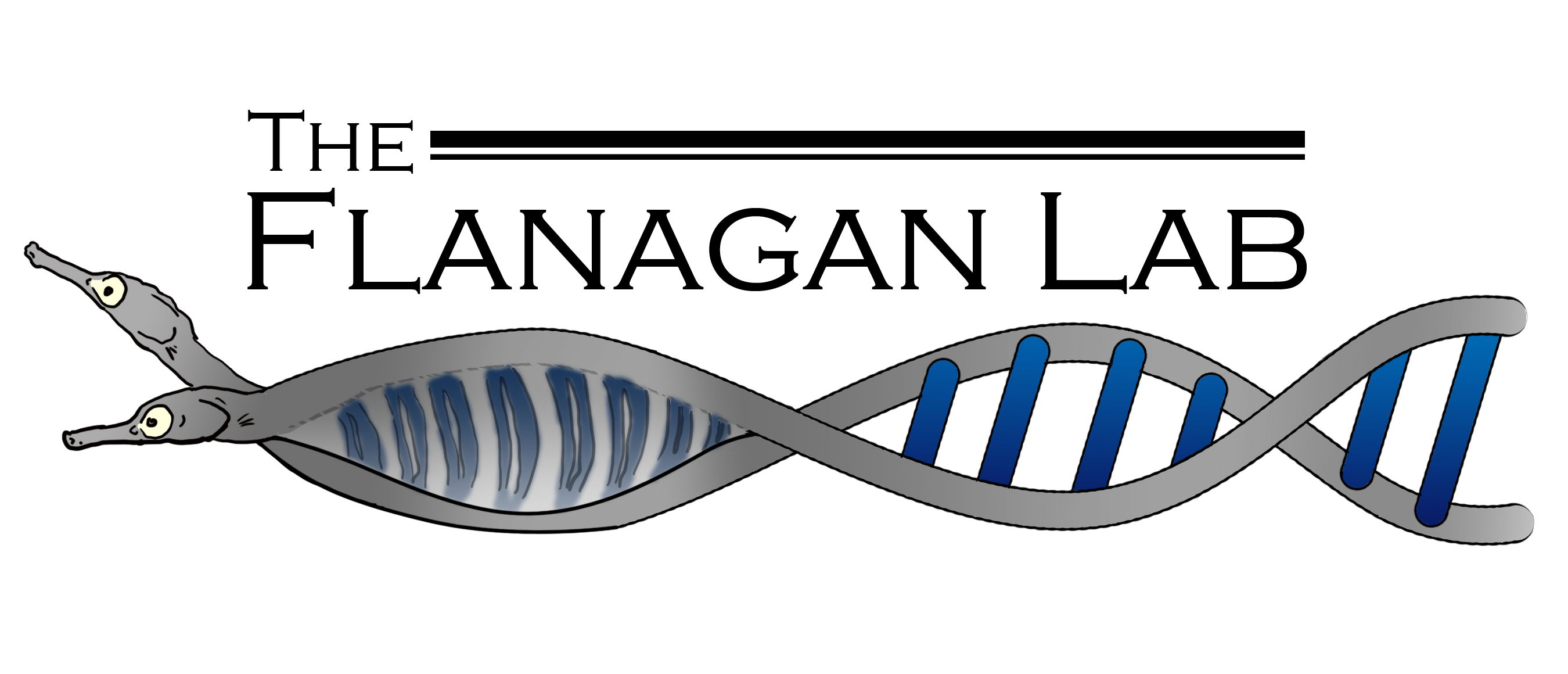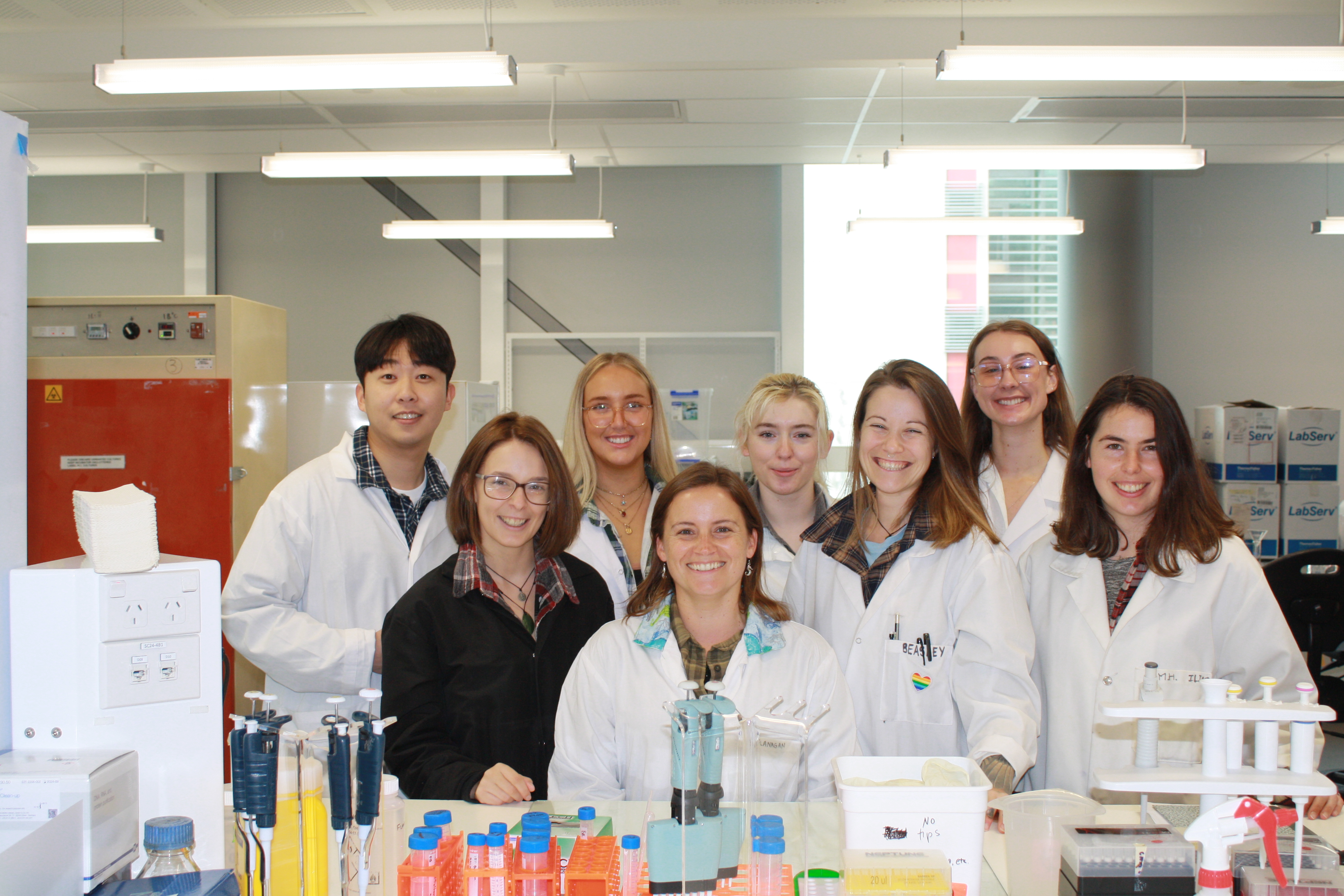Current Lab Members
Sarah P. Flanagan
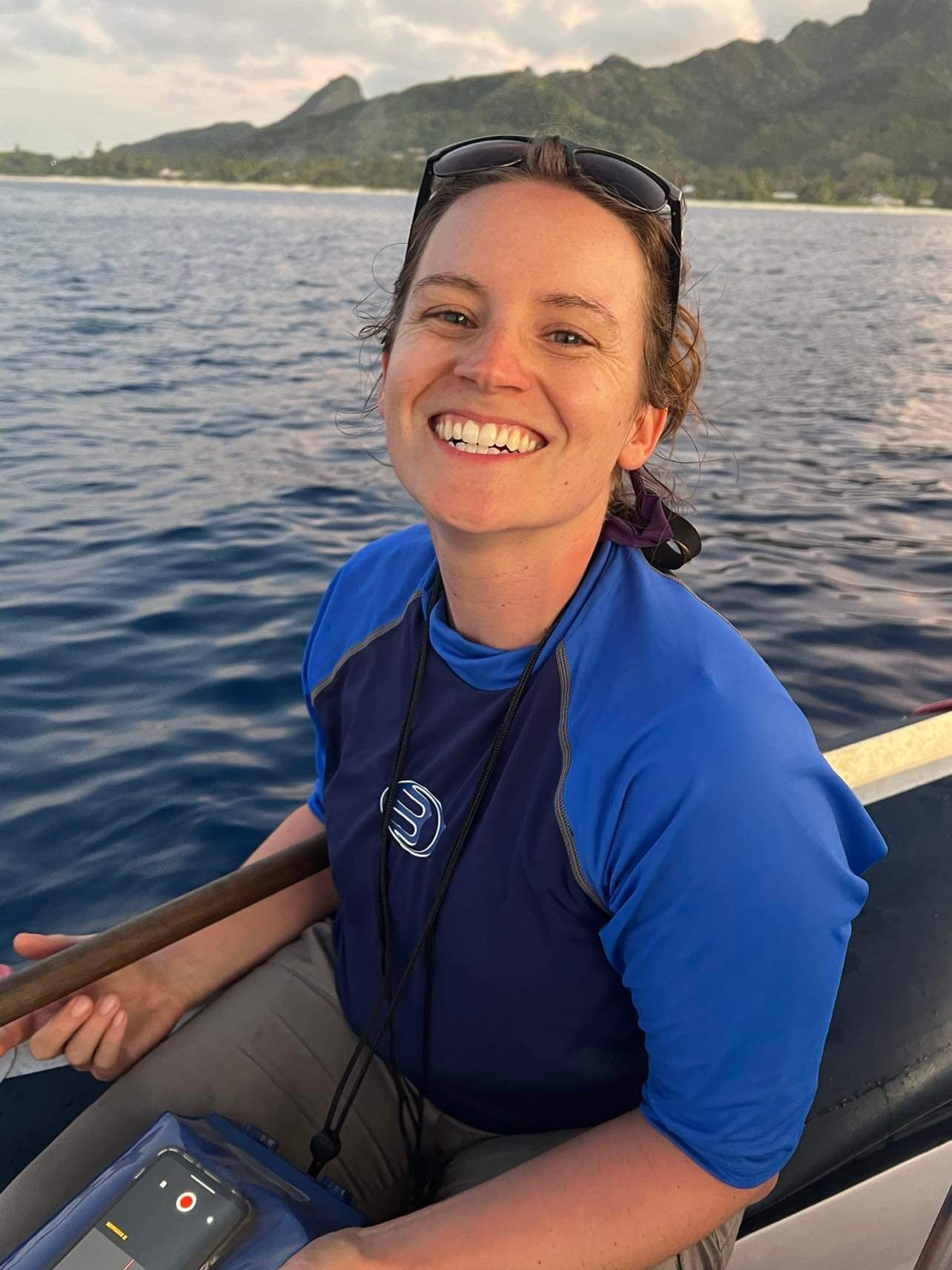 Dr. Sarah Flanagan is a Senior Lecturer Above the Bar in Evolutionary Biology in the School of Biological Sciences at the University of Canterbury in Christchurch, New Zealand. She earned her Bachelor of Arts in Biology from Colby College in Waterville, Maine, USA in 2011. In 2016 she completed her PhD in Biology with Adam Jones at Texas A&M University, and then was a postdoctoral fellow at the National Institute for Mathematical and Biological Synthesis at the University of Tennessee, Knoxville.
Dr. Sarah Flanagan is a Senior Lecturer Above the Bar in Evolutionary Biology in the School of Biological Sciences at the University of Canterbury in Christchurch, New Zealand. She earned her Bachelor of Arts in Biology from Colby College in Waterville, Maine, USA in 2011. In 2016 she completed her PhD in Biology with Adam Jones at Texas A&M University, and then was a postdoctoral fellow at the National Institute for Mathematical and Biological Synthesis at the University of Tennessee, Knoxville.
Sarah’s research focuses on the evolution of complex traits and how selection interacts with the genome. The lab’s research activities fall into two major categories: (1) understanding how sexual selection acts on traits and shapes mating systems and (2) investigating the genomic basis of traits, including the signature selection leaves on the genome. Read more about Sarah on her personal website, where she maintains a blog.
Skye Davis, PhD
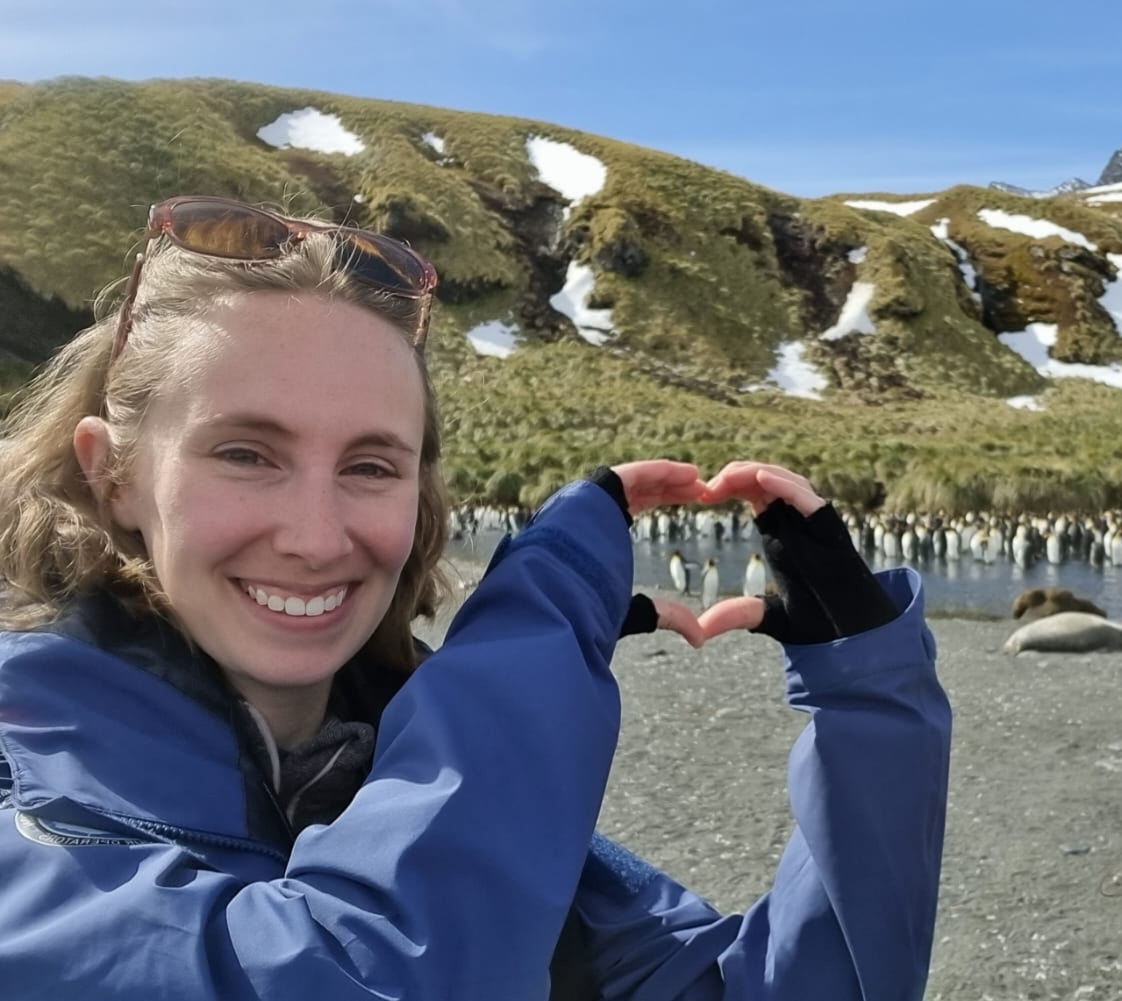 Dr. Skye Davis is a postdoctoral research fellow supervised by Sarah. Her work utilizes whole genome sequencing to investigate the population structure of emperor penguins, which will contribute to a larger project on mesopredator dynamics in the Ross Sea led by Associate Professor Michelle LaRue. Skye completed her PhD in 2024 at Macquarie University, Australia, using population genomics and environmental DNA to help improve monitoring schemes for native waterbirds that rely on ephemeral wetlands. Her research interests include molecular ecology, eDNA, aquatic birds and polar ecosystems. Email: kaytlyn.davis@canterbury.ac.nz.
Dr. Skye Davis is a postdoctoral research fellow supervised by Sarah. Her work utilizes whole genome sequencing to investigate the population structure of emperor penguins, which will contribute to a larger project on mesopredator dynamics in the Ross Sea led by Associate Professor Michelle LaRue. Skye completed her PhD in 2024 at Macquarie University, Australia, using population genomics and environmental DNA to help improve monitoring schemes for native waterbirds that rely on ephemeral wetlands. Her research interests include molecular ecology, eDNA, aquatic birds and polar ecosystems. Email: kaytlyn.davis@canterbury.ac.nz.
Alexandra Cox
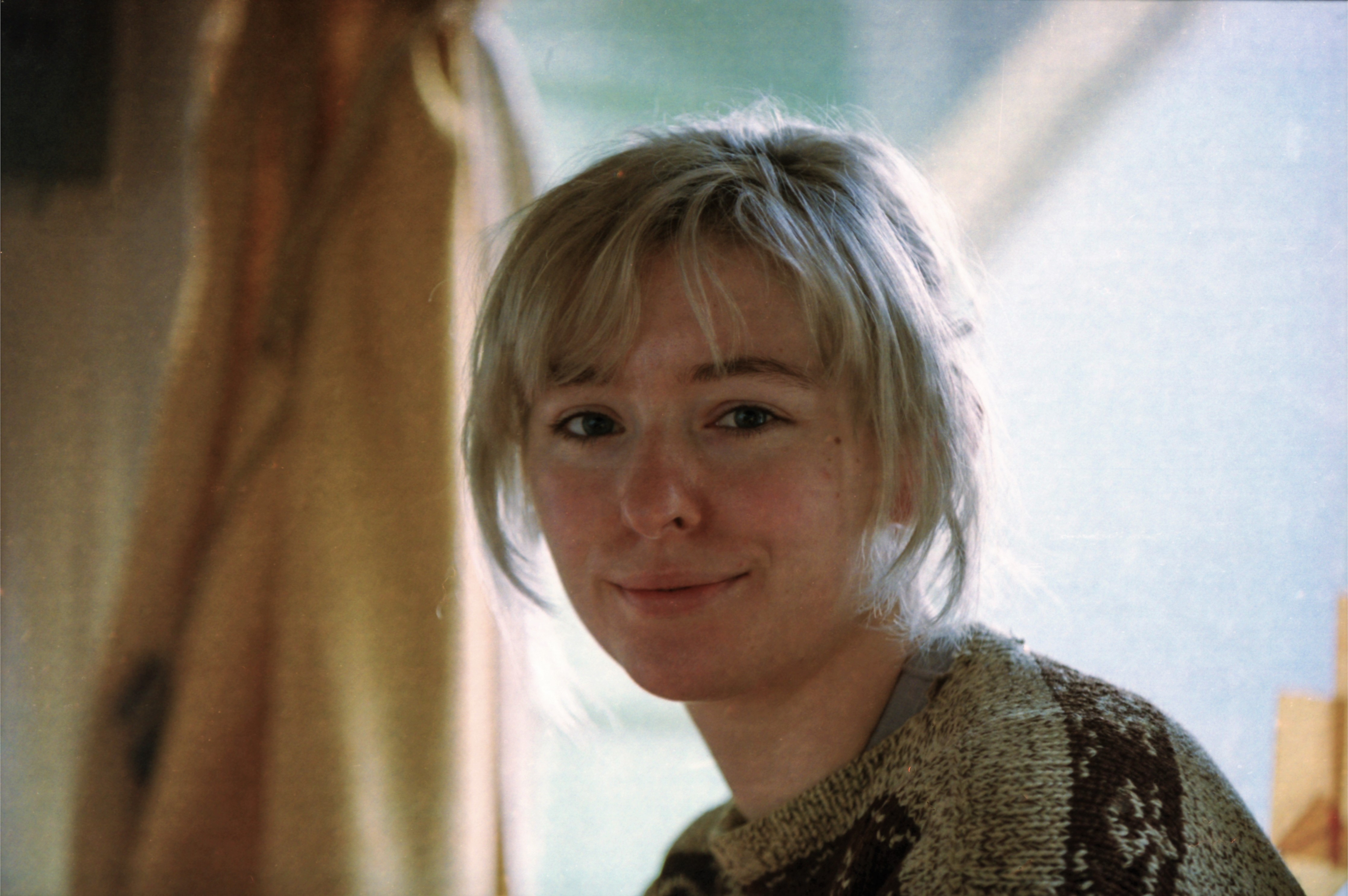 Alexandra is a PhD student co-supervised by Sarah and Dr Claudia Meisrimler. Alexanda completed her MSc thesis, supported by the Bioprotection Aotearoa Center of Research Excellence, on similar topics to her PhD, and she is now funded by Food Transitions 2050. Her work focuses on the parasitic oomycete, Phytophthora cinnamomi and identifying the genes responsible for its pathogenicity. By annotating the genome of P. cinnamomi, Alexandra’s work will contribute to a larger effort in developing counter measures against this invasive species. Her main research interests are bioinformatics, molecular genetics, plant biology and conservation.
Alexandra is a PhD student co-supervised by Sarah and Dr Claudia Meisrimler. Alexanda completed her MSc thesis, supported by the Bioprotection Aotearoa Center of Research Excellence, on similar topics to her PhD, and she is now funded by Food Transitions 2050. Her work focuses on the parasitic oomycete, Phytophthora cinnamomi and identifying the genes responsible for its pathogenicity. By annotating the genome of P. cinnamomi, Alexandra’s work will contribute to a larger effort in developing counter measures against this invasive species. Her main research interests are bioinformatics, molecular genetics, plant biology and conservation.
Juan Lee
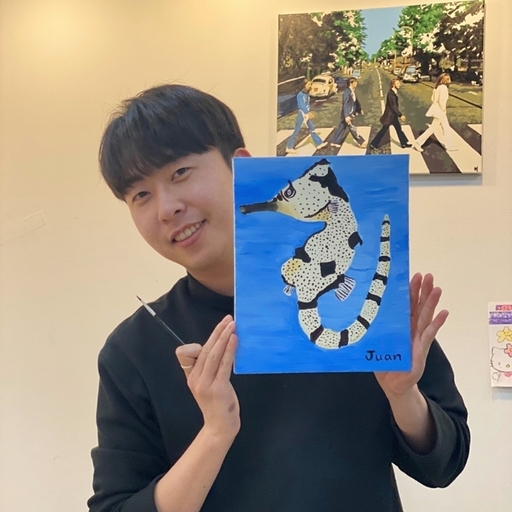 Juan is a PhD student working on pipefish taxonomy, phylogeography, and population genetics. His MSc work in South Korea focused on behaviour and developmental biology, and he is exciting to be working on syngnathid genetics for his PhD.
Juan is a PhD student working on pipefish taxonomy, phylogeography, and population genetics. His MSc work in South Korea focused on behaviour and developmental biology, and he is exciting to be working on syngnathid genetics for his PhD.
Belle Hartshorn
Belle is a BSc(Hons) student in Biology. She is performing a systematic review of peer-reviewed literature investigating sex-biased (or sex-differential) gene expression as it relates to auto-immune diseases. Her aspiration is to attend medical school after completing her degree.
